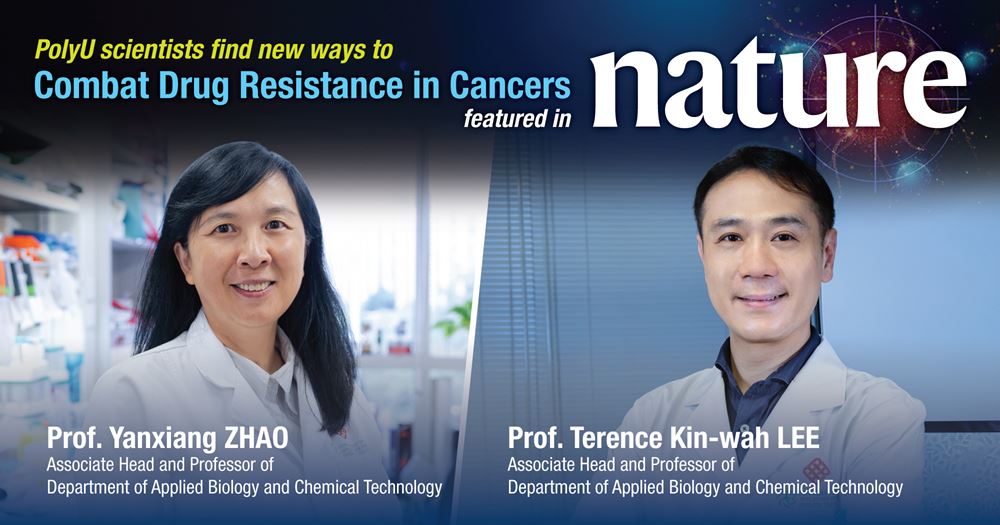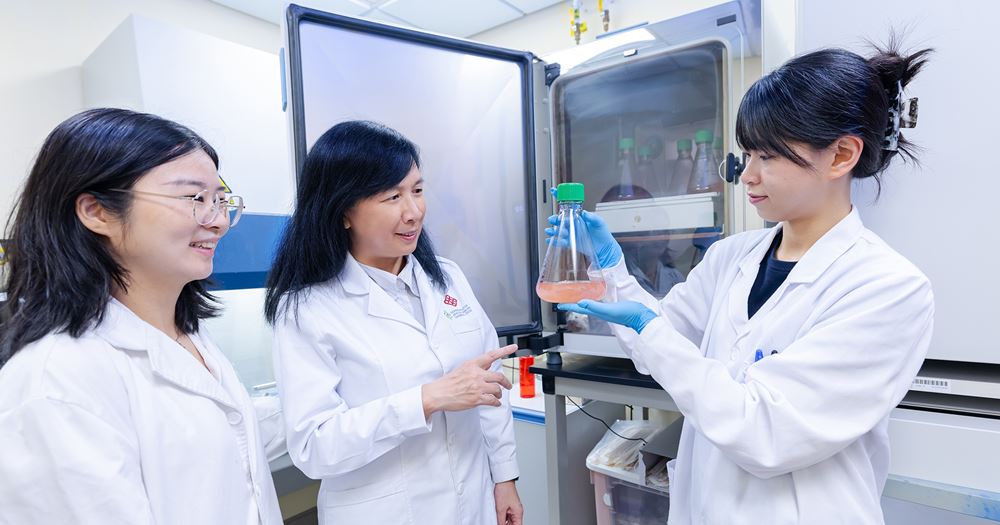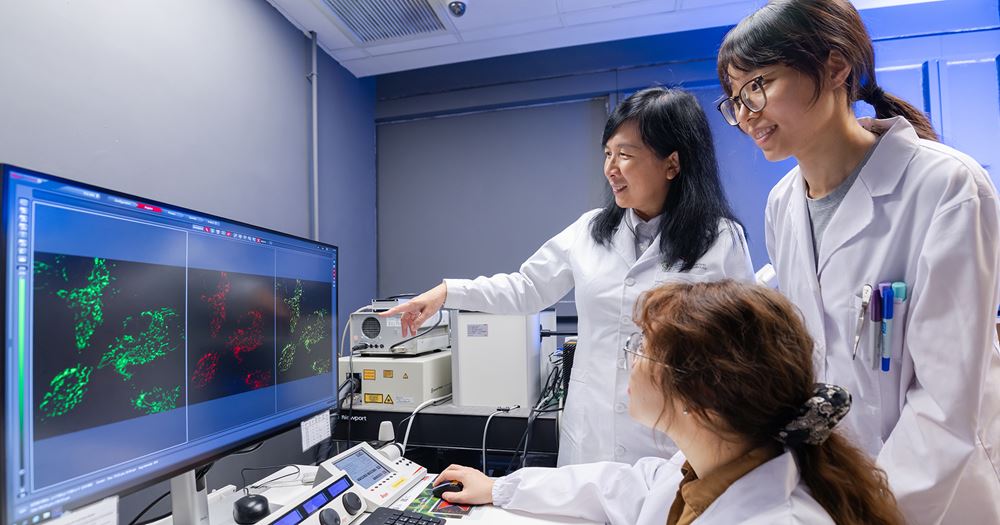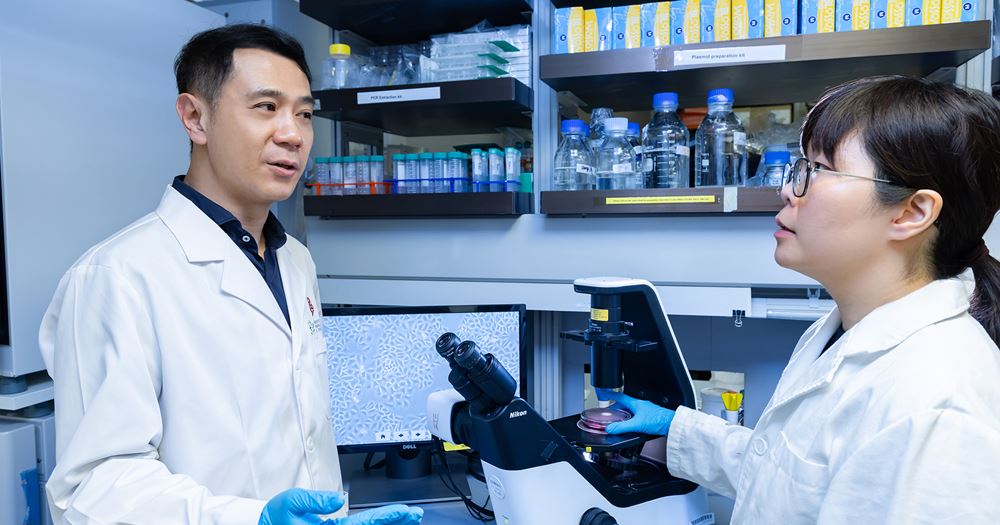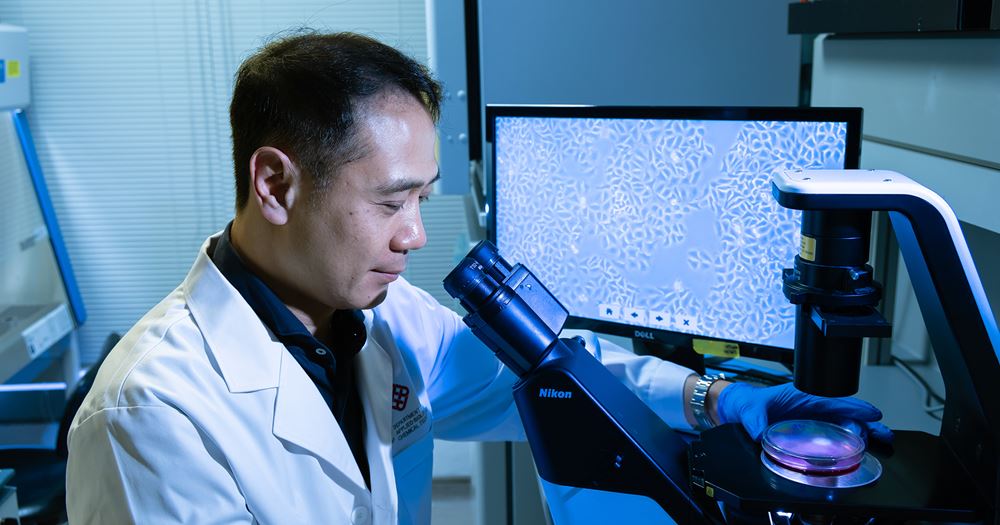Researchers at The Hong Kong Polytechnic University (PolyU) are advancing new strategies to combat drug resistance in hard-to-treat cancers. The latest Nature Index features groundbreaking cancer research led by Prof. LEE Kin-wah Terence, and Prof. ZHAO Yanxiang, both Associate Heads and Professors in the PolyU Department of Applied Biology and Chemical Technology.
Liver cancer poses a significant treatment challenge due to the liver’s natural detoxification function, which can diminish the effectiveness of therapies. Once a drug is administered, cancer cells often activate alternative signaling pathways to resist treatment. Prof. LEE’s research focuses on overcoming drug resistance from multiple fronts.
To understand why some liver cancer cells develop resistance to lenvatinib, a targeted cancer drug used to treat advanced hepatocellular carcinoma (HCC), Prof. LEE’s research team identified a protein called CDK6 as a key player in helping cancer stem cells survive, thereby making the cancer more difficult to treat. To counter this, the team tested drugs that block or break down CDK6, both in vitro and in lenvatinib-resistant HCC mouse models.
Autophagy is a vital cellular process through which cells degrade and recycle their own components, particularly in response to stress or nutrient deprivation. However, its role in cancer is complex. Both insufficient and excessive autophagy can be lethal to cancer cells. To explore this further, Prof. ZHAO proposed potential therapeutic strategies that specifically target autophagy.
Prof. ZHAO’s research team has been studying the possibility of manipulating autophagy as a potential route to new cancer treatments. These include strategies to overcome drug resistance in specific tumour types, such as certain liver cancers, where autophagy tends to occur at low levels.
PolyU’s interdisciplinary excellence is propelling advances in cancer drug research. Both professors are currently exploring strategies to overcome resistance to immunotherapy through autophagy induction and gut microbiota interventions. Stimulating the immune system to produce precise, tumour-specific responses represents a promising path forward. A personalised approach is essential, as each patient’s tumour is biologically unique.
For More: https://www.nature.com/articles/d42473-025-00320-6



